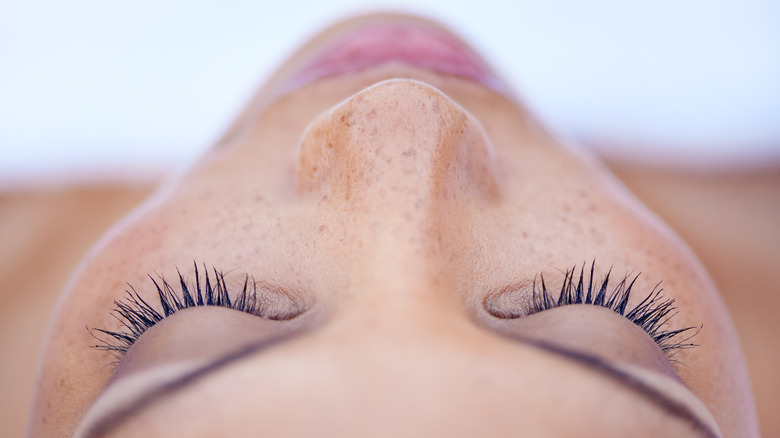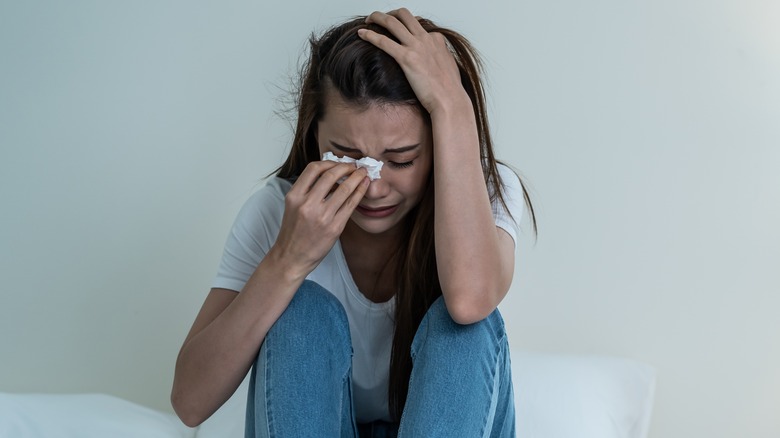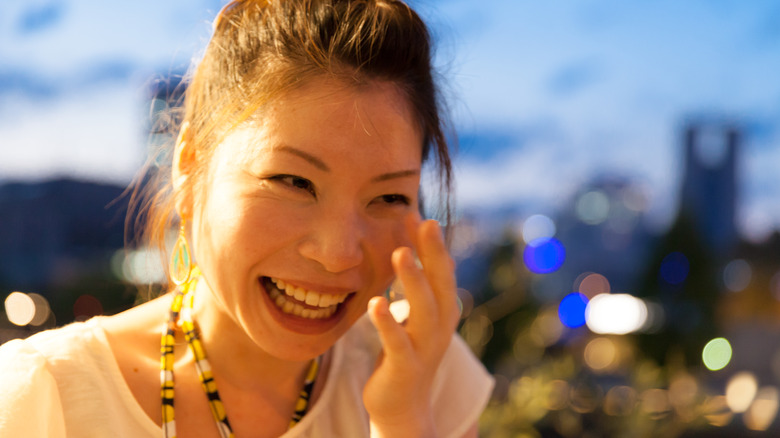Fact Or Fiction — Does Crying Make Your Eyelashes Grow? Here's The Deal
There's a new beauty myth in town, and it's left us wondering if we should be reaching for the tissues or not. This new trending myth centers on the idea that crying makes your eyelashes grow longer, and let's just say we have some questions. Scientifically, your tears serve an important function. As Marisa Garshick, a board-certified dermatologist based in New York City, explained to Byrdie, "Tears help to protect the eyes from irritants. With crying, the tears help to clear debris from the eyes, including particles and dust." So, while tears help to keep your eyes clean, does this mean they can also pull double duty by helping your eyelashes grow?
While it would be great to have a natural way to boost our eyelashes (and avoid the risks of eyelash extensions) sadly, this beauty myth is just that, a myth. Dr. Garshick elaborated, "Crying does not make the eyelashes grow, but the eyelashes may appear darker or straighter as tears lubricate the lashes." While this temporary faux eyelash enhancement is not quite the answer to all of our eyelash woes, there are still some important benefits from crying that you might not know about. Let's explore the science of your tears, and why you don't need to shed any more tears than you have to on this myth.
Your tears
Dr. Garshick explained exactly what tears are, "Tears are made of water, fatty lipids, electrolytes, proteins, and mucin, which together create the three layers in the tears: the mucous layer, the aqueous layer, and the oily layer." While these things are all great for clearing your eyes, they have no scientific effect on your eyelashes whatsoever. With that being said, if you're still dedicated to lash growing techniques, make sure you do your research on lash serums since not all of them are created equal.
You might be interested to know that there are technically three different kinds of tears: reflex, continuous, and emotional. Reflex tears are the ones responsible for clearing out debris and irritants while continuous tears are responsible for keeping your eye lubricated (which also helps protect them from infections and issues). Emotional tears are where things get interesting, since researchers have theorized that emotional tears can actually flush stress out of your body. Dr. Garshick elaborated, "Crying can help to relieve stress, and it is thought that emotional tears contain stress hormones and other toxins, though more research is needed." This means that emotional tears might have serious health benefits in addition to the relief most people feel after a good cry.
The benefits of crying
You might be asking yourself how crying can be a positive if it won't make your eyelashes grow. You might be surprised to learn that there are actually many physical and psychological benefits to crying, and these can outweigh the lash boost you might have been hoping for. Crying actually activates your parasympathetic nervous system (PNS), a system that helps your body both relax and digest (a weird combo we are here for). In this way, crying is its own form of self-soothing because it can actually help our bodies calm down, which can be very needed for those suffering from anxiety.
On top of this, extended crying can also lead to the release of oxytocin and endorphins (feel-good chemicals) as a way to help with pain — both physical and even emotional. These chemicals can also end up improving your mood and, in general, turn things around. If you are someone who cries a lot, you might be interested to know that researchers believe crying can also serve as a way of maintaining your emotional balance or equilibrium. If you're someone who has happy cries or angry cries, it's actually your body's attempt to balance out the strong emotions you're experiencing and it's normal. However, if you or someone you know is experiencing excessive crying in conjunction with other signs of depression, you should speak with your doctor as soon as possible.


